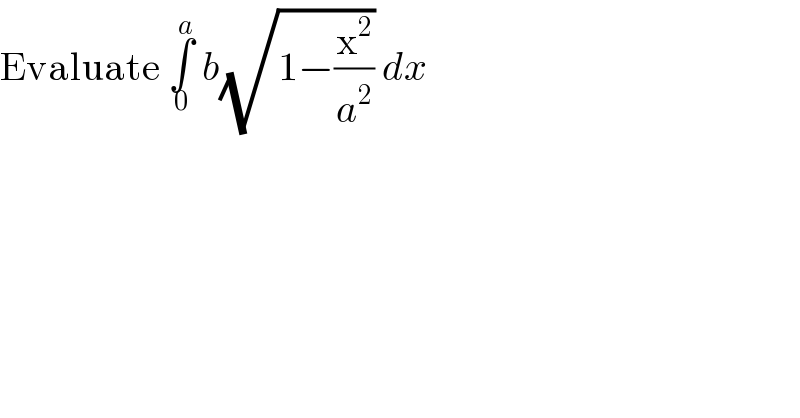
Question and Answers Forum
Question Number 118073 by bemath last updated on 15/Oct/20

Answered by john santu last updated on 15/Oct/20

Commented by bemath last updated on 15/Oct/20

Commented by MJS_new last updated on 15/Oct/20

Commented by john santu last updated on 16/Oct/20

Commented by MJS_new last updated on 16/Oct/20

Answered by 1549442205PVT last updated on 15/Oct/20
![Evaluate ∫_0 ^a b(√(1−(x^2 /a^2 ))) dx Put x=acosϕ(ϕ∈[0,π])⇒dx=−asinϕdϕ I=−∫_(π/2) ^( 0) absin^2 ϕdϕ=∫_0 ^( π/2) ab((1−cos2ϕ)/2)dϕ =(((abϕ)/2)−((ab)/4)sin2ϕ)∣_0 ^(π/2) =((abπ)/( 4))](Q118093.png)
